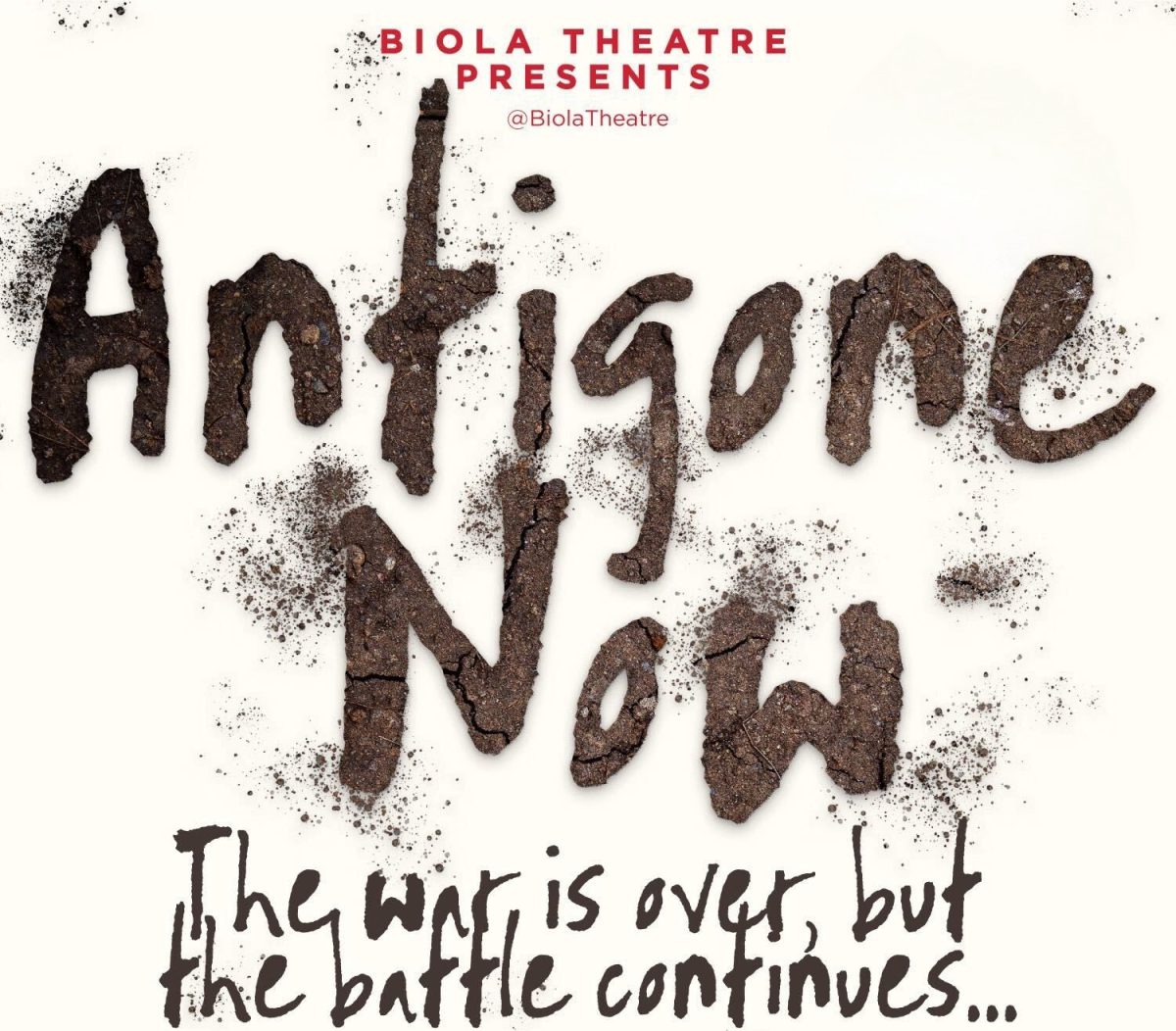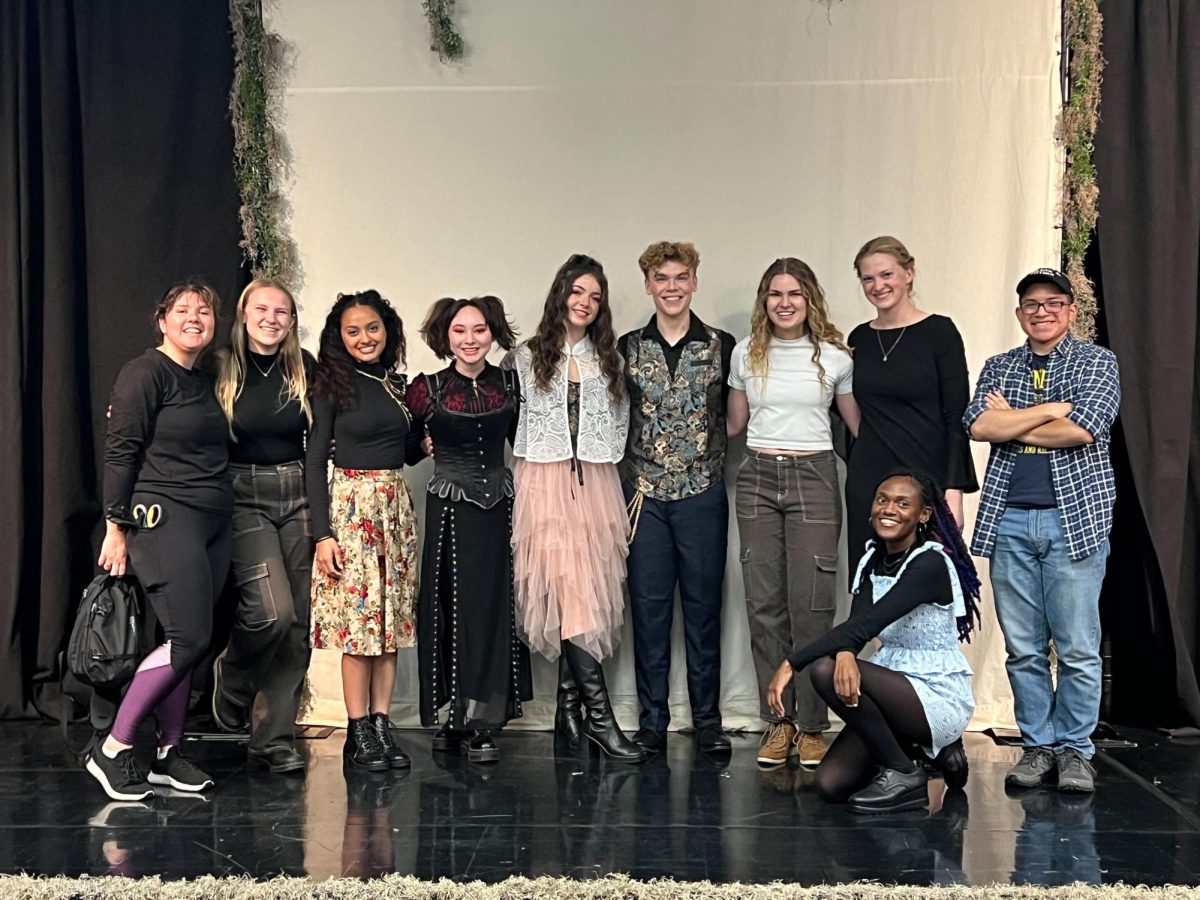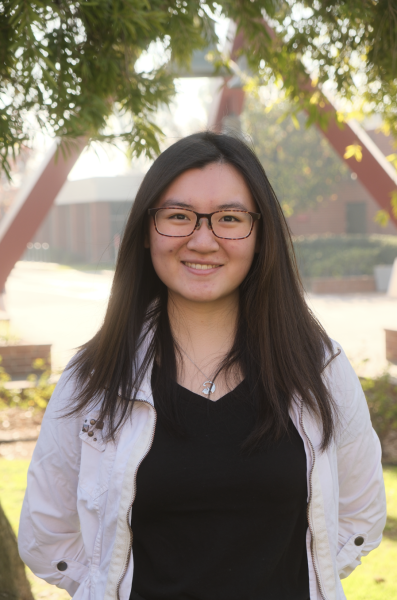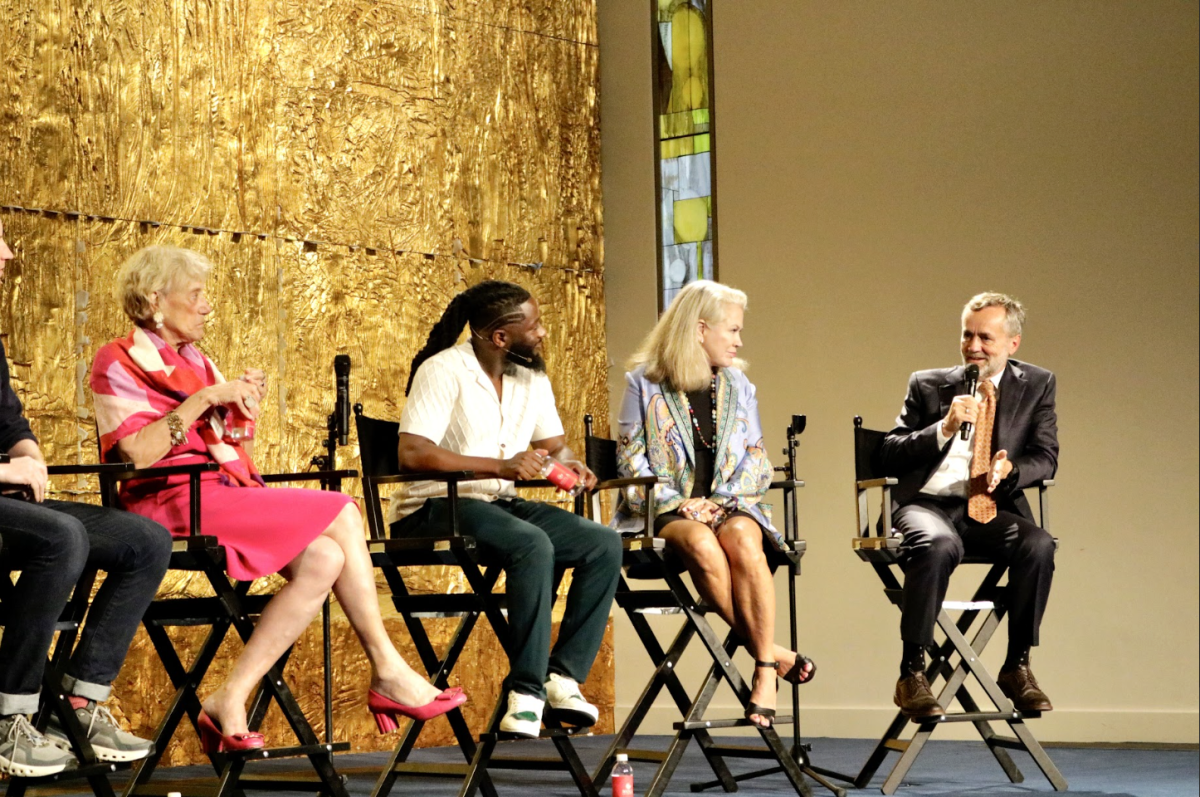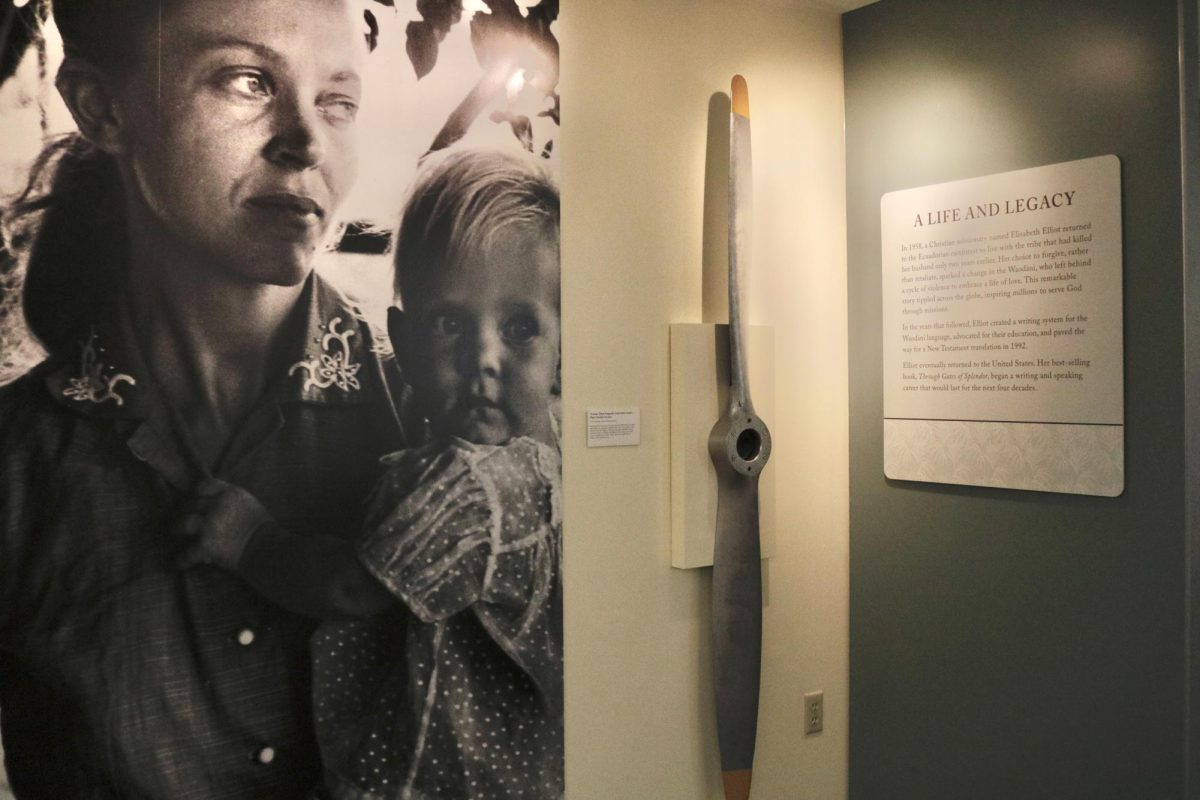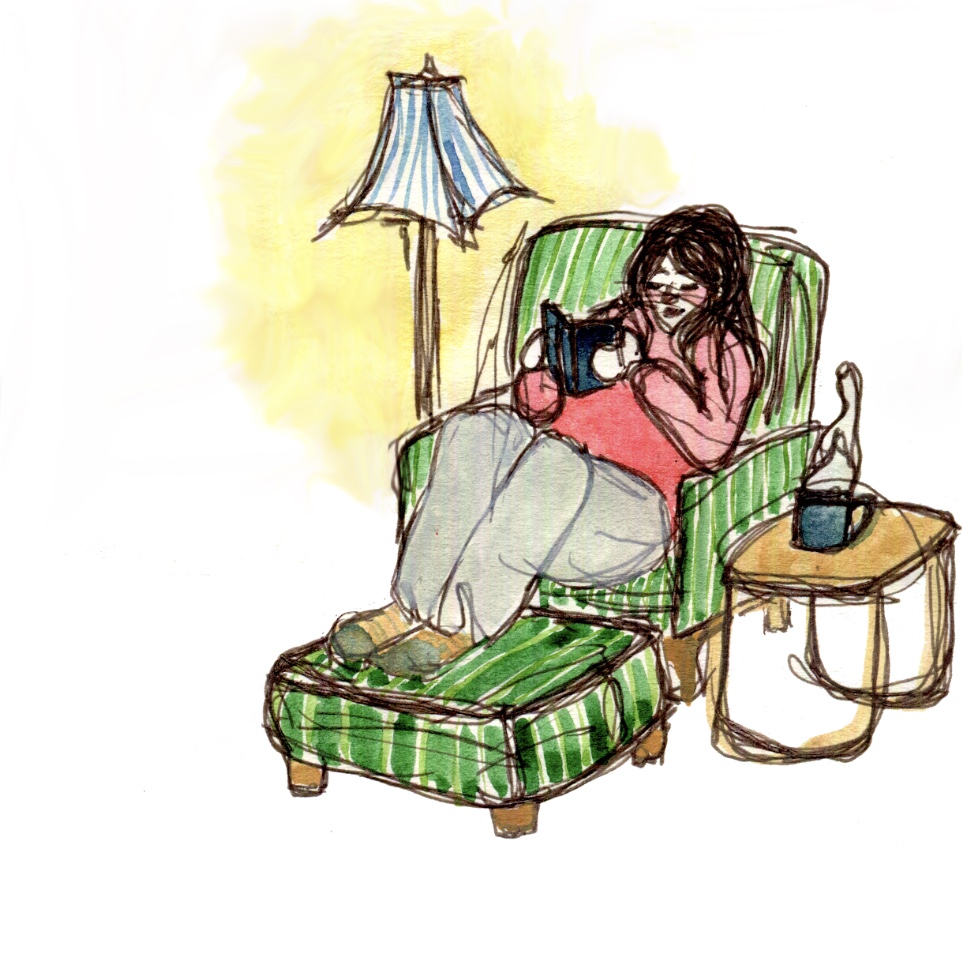Soft atmospheric music with chirping birds played gently in the background as people trickled into Mayers Auditorium. The audience settled into their seats, playbills in hand, eyes cast toward the stage. The room lights dimmed. The stage lights glowed. Four actors strode about the stage with power and emotion, breathing life into the roles they played and transporting the audience into the tragedy of “Antigone Now,” Biola Theatre’s first performance of the season.
THE DIRECTING EXPERIENCE
A performance based on Sophocles’s “Antigone,” this play by Melissa Cooper recaptures the struggle of two sisters, Antigone and Ismene, after a gruesome war destroyed their beloved city, Thebes, in a new and modern way. While Ismene tries to move on, Antigone is tortured by King Creon’s refusal to bury her traitorous brother’s corpse. Abandoning her hope in life, her drastic actions lead her against Creon and ultimately to her death. This version of “Antigone” explores deeper into the titular character’s mental state and her inability to see past her darkness.
Alexandra Edwards, the director of “Antigone Now,” graduated from Biola University in May 2023 as a theater major. While she performed in theater since she was fourteen, this production was her first experience as a director.
“I’m a writer also, so I write fiction stories. And for the longest time, I’ve always wanted to produce my stories into a film or production, but I never really knew I had what it took to be a director until this experience,” said Edwards. “It was wonderful, just knowing how every single thing I’ve done up until this point — whether it be jobs or clubs in school — I was able to use [them] to help me in this experience.”
Edwards loved to dive in and assist each aspect of the production, finding wonder in witnessing all the pieces of her work fall into place.
Edwards had worried a little about making sure the production finished smoothly. One of her biggest concerns was putting together the white screen backdrop with a bright light for making silhouettes of the actors as they posed behind the screen. She praises God for bringing everything to fruition without major issues.
“So many things could have gone wrong, especially with the shadows,” said Edwards. “That was my primary concern because I said I would give the entire budget to the shadows because I needed the silhouettes. And we found everything that we needed for those silhouettes in a day — two hours, actually. God gave us this production.”
THE BATTLE OF MENTAL HEALTH
As a Christian, Edwards also strives to bring the lens of faith upon the production in its themes of struggle and loss of hope.
“My overarching goal for this production was to just let people have that moment of introspection and spiritual truth,” said Edwards.
Edwards saw “Antigone Now” as the story of a different kind of battle after the war — a battle of mental health and struggling with the darkness.
“I could just see that it was a mental health battle with Antigone, and it displayed how people around someone who was struggling with that, they can’t tap into the struggle and they can’t relate,” said Edwards. “So in their eyes, Antigone was just holding onto the past and couldn’t let go, and they were all frustrated with her — but in Antigone’s mind, she couldn’t see past her pain in order to see hope in the future.”
Edwards could see herself in Antigone’s shoes as she also once struggled with a similar darkness. She understands the demotivation and hopelessness felt in those moments, unable to rise up and move forward.
“Sometimes in those moments, especially the lowest moments, you can’t really see beyond what you’re experiencing or feeling. It’s not as though you’re angry or you’re just searching for something. It’s just you feel nothing,” said Edwards.
GIVING HOPE
Edwards hopes that this play would make space for people to think about ways they could support one another in the great battle with mental health.
“I want people, Christians and non-Christians alike, to realize that we all have so much of an impact on one another, and we are the ones that are on this planet to help — whether it’s just to simply listen or offer advice,” said Edwards.
Antigone’s world, fraught with destruction and darkness, leaves her hopeless and with no one to rely on. This world, too, is broken, but its citizens can yet give others hope.
“We [Christians] are supposed to be here to help assist and spread love and the gospel … and this story [shows] what happens when we don’t do what we are called to do,” said Edwards. “It’s just living in a fallen world, you know. Sometimes, we need God and the people God placed in our lives to help.”

